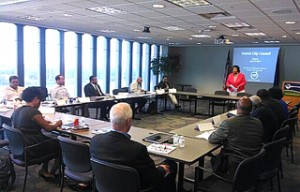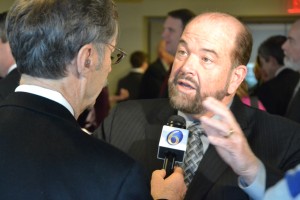In just one week voters will decide the fate of Proposal 1, which eliminates the personal property tax (PPT) on businesses without raising taxes to residents. But what happens if Proposal 1 fails?
A new community impact calculator by the Strong and Safe Communities YESon1 shows the potential losses communities could sustain if Proposal 1 is defeated and the Legislature decides to eliminate the personal property tax without any funding replacement for local municipalities. All you need to do is go to the calculator and follow the step by step instructions to see the impact on your community. For example, in Flint, if Proposal 1 fails and the PPT is eliminated without replacement that is the equivalent funding of 54 police officers, or 71 firefighters, or 464,746 meals on wheels for seniors.
Here are some details from the Strong and Safe Communities coalition about this:
A “NO” Vote on Proposal 1 and failure to pass Proposal 1 would hurt Michigan communities and Michigan small businesses. It would mean:
- Michigan communities lose by having to go back to depending on an unreliable revenue stream for essential services like fire, police, ambulances, jails, and schools – plus other valuable local community services, including senior centers, parks and libraries.
- Michigan businesses lose by having to go back to paying the antiquated unfair double tax that keeps them from investing and creating jobs.
- Many community leaders across the state fear that if Proposal 1 fails in August, the legislature could still eliminate the PPT, but not reimburse local communities for that lost revenue.
Matt Bach is director of media relations for the Michigan Municipal League. He can be reached at mbach@mml.org.



